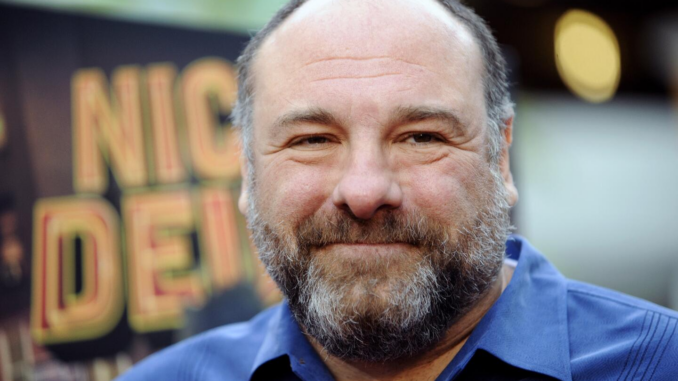
James Gandolfini Dies: Brought Swagger, Genius to The Sopranos
The entertainment world was stunned and deeply saddened when news broke on June 19, 2013, that James Gandolfini, the actor who immortalized Tony Soprano in The Sopranos, had passed away at the age of 51. His unexpected death left a void in television and film that has never truly been filled, as Gandolfini’s portrayal of the troubled mob boss changed the way audiences viewed complex characters on TV. With his signature swagger, genius performance, and raw vulnerability, Gandolfini transformed The Sopranos into a cultural phenomenon.
In this article, we pay tribute to James Gandolfini’s unparalleled contribution to The Sopranos, his legacy in television history, and the enduring impact of his portrayal of Tony Soprano. From the brilliance he brought to the role to the lasting influence of his character, Gandolfini’s legacy continues to shape the entertainment landscape even years after his death.
The Legacy of Tony Soprano: James Gandolfini’s Most Iconic Role
A Role Like No Other
James Gandolfini’s portrayal of Tony Soprano in The Sopranos redefined television. Premiering in 1999 on HBO, The Sopranos was groundbreaking in many ways, but it was Gandolfini’s unforgettable portrayal of the complex mob boss that became the centerpiece of the series. Tony Soprano was no ordinary gangster; he was a multifaceted character, struggling with personal demons, familial responsibilities, and moral contradictions. He was a man who ruled over a criminal empire but also sought therapy for his anxiety, all while trying to maintain a sense of normalcy in his family life.

Gandolfini’s performance was nothing short of revolutionary. He brought an unparalleled depth to Tony Soprano, making him both terrifying and sympathetic, often within the same scene. His ability to blend these contrasting elements—swagger and vulnerability, menace and tenderness—was one of the reasons The Sopranos resonated so deeply with audiences and critics alike.
In a time when most television protagonists were still one-dimensional and stereotypical, Tony Soprano was a character who had layers—he was a ruthless mob boss, a conflicted husband, a father struggling with his children’s future, and a man who tried to reconcile his violent, criminal world with his personal emotional turmoil. And it was Gandolfini’s genius that made it all so compelling. His Tony Soprano was, for many, the epitome of modern television’s ability to blend drama and dark humor.
Swagger and Presence: How Gandolfini Defined Tony Soprano
Tony Soprano’s presence was felt every time he entered a room. He commanded attention, whether he was in a boardroom, at a family dinner, or in a therapy session. Gandolfini’s physicality played a significant role in this, as his towering stature and imposing presence made Tony one of the most unforgettable characters in TV history. Yet it wasn’t just his size or strength that made him so captivating—it was the subtleties of his performance. Gandolfini had a way of delivering lines with a mix of irony and sincerity, making Tony a character you both feared and empathized with.
The character of Tony Soprano was infamous for his sharp wit, raw power, and often unfiltered emotions. Gandolfini’s approach to the role was unflinching; he never played Tony as a mere villain or a stereotypical gangster. Instead, he showed the full complexity of the character’s personality. Whether he was dealing with the murder of a close associate or trying to understand his strained relationship with his wife, Carmela (played by Edie Falco), Tony was always a character in flux—an antihero in the truest sense.
Perhaps one of the most iconic aspects of Gandolfini’s portrayal was the way he injected moments of vulnerability into Tony’s otherwise tough exterior. The therapy sessions with Dr. Jennifer Melfi (Lorraine Bracco) became a focal point for Tony’s emotional struggles, as he confided in her about his panic attacks, his fears of inadequacy, and his overwhelming sense of guilt. These scenes showed a different side of Tony—a side that made him more human, more relatable, and more tragic.
Gandolfini’s genius was his ability to balance the darker, menacing aspects of Tony with the humanity that made him so compelling. The show’s success, in many ways, hinged on Gandolfini’s brilliant performance.
The Cultural Impact of James Gandolfini and The Sopranos
Changing Television Forever
Before The Sopranos, television was largely dominated by network shows that often followed formulaic structures. The antihero as a central character was rare, and complex characters in television dramas were virtually nonexistent. With Gandolfini’s portrayal of Tony Soprano, The Sopranos helped pave the way for a new wave of television where protagonists were deeply flawed, morally ambiguous, and often deeply troubled.
Tony Soprano’s character helped redefine the potential of television drama. The series was a pioneer in showcasing the psychological complexity of its central character, blending crime, family drama, therapy, and existential exploration. In many ways, Tony’s journey became a metaphor for the shifting landscape of TV itself: darker, more layered, and far more reflective of the human experience.
James Gandolfini’s portrayal of Tony also shifted the audience’s expectations of what an actor could bring to a television role. His performance was multifaceted and layered, demonstrating that television could produce performances as rich and complex as those found in film. His work in The Sopranos has since been cited as one of the greatest television performances of all time, and it remains a gold standard for actors who take on complex, leading roles in TV dramas.
The Enduring Influence of The Sopranos
Since its conclusion in 2007, The Sopranos has been heralded as one of the greatest TV series of all time. Its impact on the television landscape cannot be overstated, and much of that success is owed to the iconic performances of its cast, especially Gandolfini.
Even years after the series ended, The Sopranos continues to influence the TV landscape. Modern series like Breaking Bad, Mad Men, The Wire, and Better Call Saul all owe a debt to the groundbreaking nature of The Sopranos and its portrayal of morally conflicted characters. And in every one of these shows, the shadow of Tony Soprano looms large—he set the stage for antiheroes who would dominate television in the years to come.
But what makes Tony Soprano so memorable is not just the complexity of his character, but the authenticity that Gandolfini brought to the role. The nuances of Tony’s personality, his relationships with his family and friends, and the moral dilemmas he faced, all stemmed from Gandolfini’s exceptional understanding of the character. He brought a humanity to Tony that made the character’s crimes, flaws, and conflicts seem not only believable but tragic.
The Loss of James Gandolfini: A Personal and Industry-wide Tragedy
A Devastating Loss for Fans and Co-Stars
James Gandolfini’s death was a tragic moment for both his fans and his Sopranos family. His colleagues from the show have often expressed how deeply they were affected by the loss, not only because of the tremendous void he left in the industry but because of the kind of person he was.
Edie Falco, who played Tony’s wife Carmela Soprano, called Gandolfini “one of the greats,” recalling how their on-screen partnership helped define the show’s dynamic. “The loss of James is a profound one for me personally,” she said. “He was a friend, a mentor, and a brilliant actor who made every scene we shared together something memorable.”
For Michael Imperioli, who played Tony’s nephew Christopher Moltisanti, Gandolfini was more than just a co-star. Imperioli referred to him as a brother, noting how Gandolfini’s presence on and off set helped create an environment of mutual respect and collaboration.
The entertainment world lost not just a remarkable actor but a kind-hearted and generous man who shared his talent with the world. And though the world of television has seen incredible performances in the years since, none can quite measure up to the indelible mark that Gandolfini left with his portrayal of Tony Soprano.
Conclusion: The Enduring Legacy of James Gandolfini
James Gandolfini’s death in 2013 was a heartbreaking moment for fans of The Sopranos and for anyone who appreciated his work. His legacy, however, lives on through his work as Tony Soprano, a character that forever changed the face of television. Gandolfini’s genius as an actor, his swagger, and his vulnerability made Tony Soprano one of the most iconic characters in TV history, and his influence can still be felt in the complex characters we see on